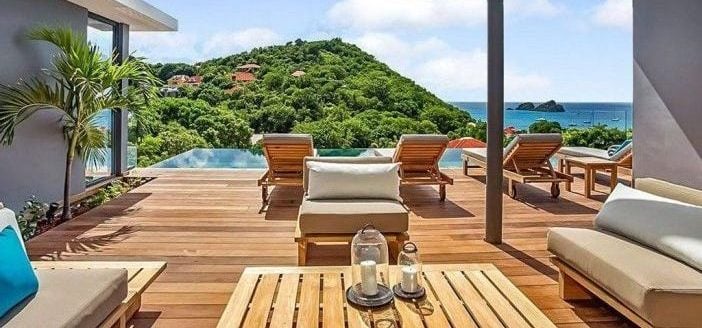Reimagining Property: The Rise of Fractional Vacation Homes
In recent years, a significant shift has been observed in the way people perceive property ownership, particularly in the realm of vacation homes. Traditional notions of owning a vacation property are being redefined as more people embrace the concept of fractional vacation homes. This innovative approach to homeownership offers a compelling alternative, amalgamating the benefits of personal property with the flexibility and reduced financial burden that modern-day adventurers crave.
The Concept of Fractional Ownership
Fractional ownership is an increasingly popular model where multiple individuals share ownership of a property. Unlike timeshares, which typically provide buyers with a right to use a property for a specific period each year, fractional ownership involves purchasing a share of the property itself. This entitles owners to enjoy the benefits of equity, potential appreciation, and a tangible asset that they can resell or pass down to heirs.
The fractional ownership model addresses a significant hurdle in vacation home ownership: cost. By distributing the financial load among several stakeholders, it lowers the barrier to entry, making luxury vacation homes accessible to a broader audience. Owners typically enjoy several weeks or months at their property, depending on the number of shares owned, allowing flexibility and personal utilization without the year-round responsibility and expense.
Technological Influence
The rise of fractional vacation homes is fueled by advancements in technology. Digital platforms have emerged that facilitate co-ownership arrangements by matching buyers, simplifying transactions, and even managing the logistics of property maintenance and scheduling. These platforms provide a seamless experience akin to home-sharing services, utilizing sophisticated algorithms to optimize usage and ensure equitable distribution of prime vacation time among owners.
Moreover, blockchain technology has begun to make inroads in this space, providing a secure, transparent method to handle ownership records, making the process even more trusted and streamlined.
Economic and Lifestyle Impacts
The economic implications of this trend are significant. Fractional ownership can stimulate local economies, as owners are likely to spend more in the community around their vacation homes than transient hotel guests. This model encourages longer stays and more immersive tourism experiences, contributing to small businesses and helping stabilize local real estate markets with a steady influx of responsible, vested homeowners.
From a lifestyle perspective, fractional vacation homes cater to the evolving desires of modern buyers who prioritize experiences over possessions. Today’s affluent consumers often seek to invest in a portfolio of lifestyle assets that enhance their quality of life without the burden of full ownership.
Sustainability and Environmental Benefits
Fractional ownership also holds promise for sustainable development. By optimizing the use of existing structures rather than constructing new ones, this model can reduce the pressure to develop untouched landscapes. Shared ownership promotes efficient resource use and minimizes the ecological footprint of vacation homes, aligning with the growing trend of sustainable and responsible travel.
Challenges and Considerations
Despite its advantages, fractional ownership is not without challenges. Potential buyers must thoroughly understand the terms of co-ownership arrangements, particularly regarding scheduling, decision-making, and the eventual sale of their share. Co-owners must collaborate effectively to manage the property, address maintenance needs, and navigate interpersonal dynamics.
Additionally, legal frameworks surrounding fractional ownership can vary significantly by location, requiring careful due diligence and consultation with legal experts to ensure compliance and protect one’s investment.
Conclusion
The rise of fractional vacation homes reflects a broader transformation in how people approach property ownership in the 21st century. As lifestyle preferences shift toward flexibility, shared experiences, and sustainability, fractional ownership offers a model that aligns with these values. By democratizing access to luxury vacation properties and reducing individual burdens, it paves the way for a new era in the real estate landscape.
As this trend gains momentum, it will undoubtedly continue to evolve, presenting exciting opportunities and challenges for developers, investors, and communities worldwide. Whether it’s a modern condo in a bustling city or a tranquil retreat in nature, fractional vacation homes are reimagining the ownership experience, offering a viable alternative that meets the needs of today’s dynamic and discerning buyers.

